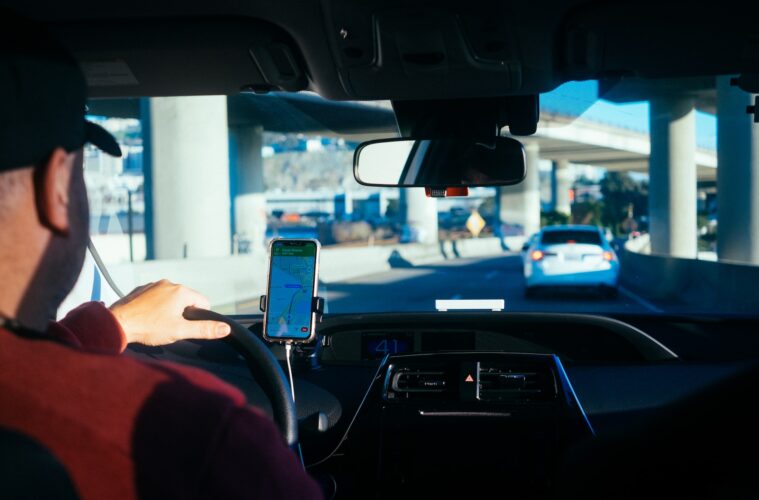In the past decade, the way people travel has been revolutionised by technology, and one company that has been at the forefront of this transformation is BlaBlaCar. Founded in 2006 by Frédéric Mazzella, BlaBlaCar has reimagined long-distance travel by creating a platform that connects drivers with empty seats to passengers travelling in the same direction. This innovative concept has not only transformed the way people travel but has also had a significant impact on the environment, local economies, and social interactions.
The Birth of a Revolutionary Idea:
The idea for BlaBlaCar was born out of necessity and personal experience. Frédéric Mazzella was faced with the challenge of finding a ride home for Christmas during a time when trains and buses were fully booked. This predicament led him to consider the potential of carpooling – a concept that was already common in many parts of the world but was not effectively organised in Europe. Mazzella realised that many people were driving alone for long distances, and there was an opportunity to create a platform that would connect drivers with passengers, allowing them to share the cost of the journey.
The Functioning of BlaBlaCar:
At its core, BlaBlaCar is a peer-to-peer ridesharing platform that matches passengers with drivers heading in the same direction. The platform uses advanced algorithms to connect users, taking into account factors such as departure and arrival locations, travel dates, and user preferences. Unlike traditional ridesharing apps that focus on shorter, urban journeys, BlaBlaCar specialises in long-distance travel, making it particularly useful for intercity and cross-country trips.
Drivers looking to offer rides list their available seats, departure times, and a proposed fare on the platform. Passengers interested in the journey can browse through the available options, review driver profiles and ratings, and then request a seat. Once the driver accepts the request, the passenger secures a seat and pays the agreed-upon fare through the platform. BlaBlaCar also facilitates secure payments and provides insurance coverage to ensure a safe and reliable experience for all parties involved.
The Benefits of BlaBlaCar:
1. Cost Efficiency:
One of the most significant benefits of BlaBlaCar is its cost-efficiency. By sharing the cost of fuel and tolls, passengers can enjoy long-distance travel at a fraction of the cost of traditional transportation methods.
2. Environmental Impact:
BlaBlaCar contributes to a reduction in the number of single-occupancy vehicles on the road, leading to a decrease in carbon emissions. This aligns with the company’s commitment to sustainable transportation and its efforts to promote eco-friendly travel.
3. Community Building:
BlaBlaCar fosters a sense of community among users. Passengers and drivers often have the opportunity to interact and connect during the journey, leading to shared experiences and sometimes even friendships.
4. Flexibility:
The platform offers flexibility in terms of travel times and routes. Users can find rides that match their preferred departure and arrival times, and drivers can choose to offer trips that align with their schedules.
5. Accessibility:
BlaBlaCar makes travel accessible to people who might not have access to their own vehicles or who prefer not to drive long distances alone. This can be particularly helpful for individuals in rural areas with limited transportation options.
Challenges and Future Prospects:
While BlaBlaCar has achieved remarkable success, it has also faced challenges along the way. Regulatory hurdles, safety concerns, and issues related to trust between users have been areas of contention. The platform has taken steps to address these challenges, including implementing user verification processes, providing insurance coverage, and working with governments to ensure compliance with local regulations.
Looking ahead, BlaBlaCar continues to expand its services and offerings. The company has introduced features such as BlaBlaCar Bus, which provides an alternative to traditional bus travel, and BlaBlaLines, which focuses on daily commutes. Additionally, the company has expanded its reach beyond Europe to countries like India and Mexico, indicating its commitment to making a global impact.
BlaBlaCar – Conclusion:
BlaBlaCar has undeniably changed the way people approach long-distance travel. Its innovative platform has not only made transportation more affordable and sustainable but has also facilitated meaningful connections between individuals. By tapping into the power of shared mobility, BlaBlaCar has transformed a simple idea born out of necessity into a global movement that has the potential to reshape the future of travel. As technology continues to evolve, it will be fascinating to see how the company adapts and contributes to the ever-changing landscape of transportation.



